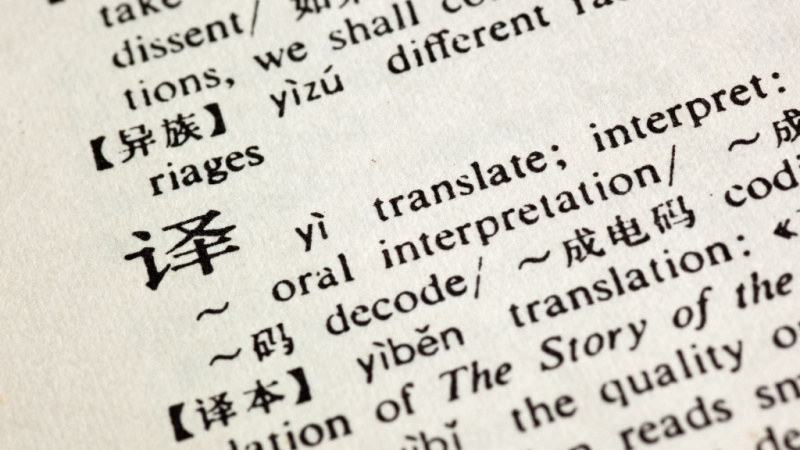‘Translators and traitors’: What to be wary of when reading translations of PRC diplomatic/foreign affairs statements
September 23 2022

Summary
This analysis reviews recent translation controversies involving PRC diplomatic statements in order to stimulate further discussion on guidelines that could help readers better appreciate the limitations and idiosyncrasies of translations pertaining to this field, and spot signs of sub-optimal translations that have could potentially inform poor or calamitous foreign policy responses.
Key takeaways
- Official People’s Republic of China (PRC) Ministry of Foreign Affairs (MFA) translations are of variable quality, and may inadvertently – and at times perhaps intentionally – convey different messages from their Chinese source:
→ The quality of MFA translations may be sub-optimal and should ideally be substituted by professional translations where possible;
→ They are often based on post-edited paraphrases as opposed to direct quotes of statements from PRC leaders and spokespersons, and there are sometimes discrepancies between the translation and the original statement;
→ They sometimes differ from the Chinese original because they address different reader cohorts: Chinese-language MFA statements are directed more towards a domestic audience relative to their official translations;
→ MFA translations are at times an important supplementary source to accurate translations of Chinese source-texts – since they are less directed at domestic image management, they may better reflect the tenor/substance of official diplomatic representations. Discretion should be applied in deciding whether differences found in MFA official translations are worth noting.
- Vivid depictions of concrete phenomena/actions – especially those which appear out of place or which use highly evocative language can be a sign that a Chinese idiom has been translated literally and at the expense of its figurative meaning. While commentators should seek to reflect the tenor of the idiom, they need to be careful not to misinform their readers by conveying the literal meaning at the expense of the figuration meaning.
- Translations that regularly exhibit a surgical level of specificity above that which is found in Western diplomatic statements should be approached with caution – they may be distorted by a translator’s aversion to opacity.
- ‘Core interests’ might be ‘Core Interests’: vague assertions of relationship expectations – especially in joint statements – might be understood on the PRC side as a commitment to concrete obligations, and the contents/scope of these obligations may be subject to redefinition. This is especially relevant for policymakers.
- English translations whose focal point is unclear, and which appear convoluted, preachy or that espouse grand visions in highly technical or, conversely, archaic language, may have allowed the representation of domestic attempts at Communist Party of China (CPC) image maintenance to obscure their core message and/or misrepresent their tenor. Reports or analyses focused on more immediate policy responses should seek to isolate their core message.
Dr Corey Lee Bell is a Project and Research Officer at the Australia-China Relations Institute, University of Technology Sydney (UTS:ACRI).
To read the full paper please download the PDF

